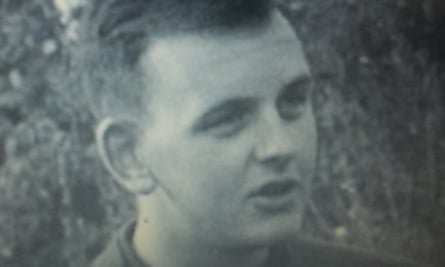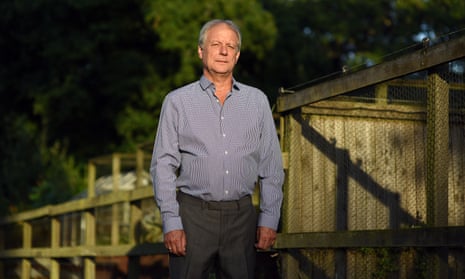A man found guilty of stealing mailbags more than 40 years ago has had his conviction quashed in what the lord chief justice described as an exceptional case. The court of appeal heard that the arresting officer in the original trial had died in prison not long afterwards while also serving a sentence for mailbag theft.
Stephen Simmons, now 62, a businessman from Dorking in Surrey, was arrested with two friends in Clapham, south London, in June 1975 by DS Derek Ridgewell of the British Transport Police, who attributed incriminating remarks to the young men.

They were allowed to see a duty solicitor who told them that if they called the police liars, the judge would jail them for a long time. Despite the solicitor’s warnings, they pleaded not guilty but were all convicted.
Simmons was sent to a borstal in Suffolk and served eight months. He said that the conviction had haunted him ever since and until recently he had not even told his grown-up daughters about the case.
Steven Powles, for Simmons, told the court: “Mr Simmons has been waiting for 43 years for this day.” The crown did not contest the application nor seek a retrial, he said.
The court heard that four years ago Simmons was given “friendly advice” by barrister Daniel Barnett on LBC radio’s legal advice programme to Google the name of his arresting officer if he wished to overturn his conviction. He did so without expecting to discover anything but what emerged was that Ridgewell himself had been jailed for seven years for mailbag thefts totalling £300,000 in 1980, and had died in prison in 1982.
“I was gobsmacked,” Simmons told the Guardian. He then took his case to the criminal cases review commission whose “meticulous research”, carried out by case worker Adam Bell, led to the appeal.
The lord chief justice, Lord Burnett, sitting with Mr Justice Warby and Mr Justice Julian Knowles, paid tribute to Bell’s “remarkable” efforts and expressed regret to Simmons that the case had taken so long to come back to court. He said that the evidence before him was “extremely telling … It is an exceptional case”.
What also emerged, the court heard, was that Ridgewell was responsible for a series of notorious cases in which young black men were falsely accused of “mugging” on the London Undergound. One victim was Winston Trew, who along with three others became known as “the Oval 4”, and who was present in court for Simmons’ appeal.
Trew has written a book, Black for a Cause, which detailed Ridgewell’s long history of “fit-ups” and and which became part of the investigation.
“This is one of the happiest days of my life,” said Simmons outside court after his conviction was quashed. “It has hardly sunk in but I am not a criminal any more. I can hold my head up high.
“One of the hardest things for me was that my parents did not believe me because they were of the generation that believed that the police could not lie.”

He had suffered ill-health as a result of the prosecution and one of his co-defendants became an alcoholic and is now dead. “Ridgewell ruined three lives for no reason and I am sure many, many more ... if this can help someone else who was also arrested by him then at least something will have been achieved.”
Trew, who embraced Simmons after the case, said: “Today is a great day. This opens the door for me to present my case. It means that evidence that Ridgewell gave in our trial is as tainted as in Stephen’s case.”










